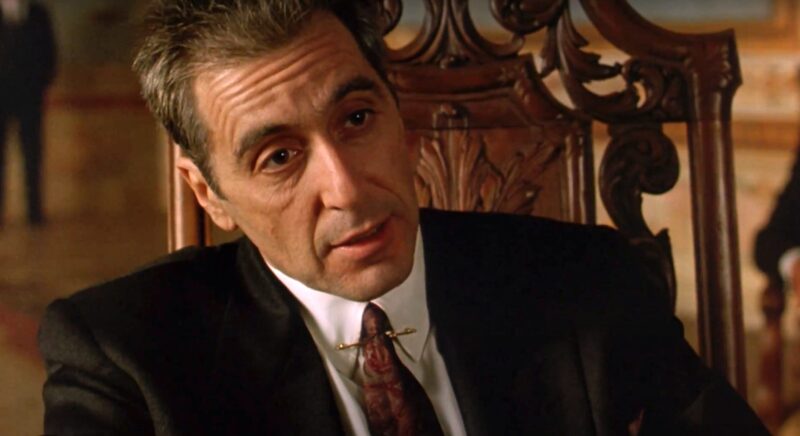
In the Godfather Part III (I know, I know), in response to his protege threatening to knock off a competitor, Mafia don Michael Corleone quips “never hate your enemies, it affects your judgment.”
This is a common theme throughout the Godfather series, also embedded in the (in)famous “it’s not personal, strictly business” line. The cold-hearted calculation for self-interest that requires people to put personal or petty grudges on the side. Incidentally, this is a theme in the book too. For example, the scene where the pedophile/movie producer–his pedophilia is hinted at in the movie but is much more explicit in the book–loses his temper with Tom Hagan is accompanied by an internal monologue where Hagan is stunned that somebody so accomplished would let his emotional desire for vengeance drive his actions.
You see this in politics, diplomacy, business, and other high-stakes games where people who would otherwise hate each other are willing to turn and collaborate on a dime if it’s in their own self-interest. On the opposite extreme, I’ve seen people in the professional world burn all their bridges down because they could not get in control of their personal spite, and one’s ability to be the former and not the latter is a sign of mature emotional regulation. You just don’t pick fights or make enemies unless you have to, because antagonists can hurt you later down the road, sometimes in unpredictable ways. I remember seeing an interview with former President Bill Clinton when the interviewer brought up Newt Gingrich, his nemesis that tried to destroy him multiple times. While not pretending like everything was hunky dory you could tell Clinton was trying not to speak ill of him more than he had to and simply stated that he was able to get some things done with him once things had settled down.
Of course, the motives are not ideal. We should not act out of spite for the right, Christ-like reasons, but the Godfather theme communicates a truth I’ve picked up in my own life: there are practical as well as spiritual benefits to not hating one’s enemies.

Comments
3 responses to “Christ-Like Living According to “The Godfather””
I see your point, but Corleone’s advice doesn’t count as Christlike. Christ didn’t say “Don’t hate your enemies”, he said “Love your enemies.” I’m sure Corleone would disapprove of that too, on the the grounds that loving your enemies also affects your judgement.
Stephen C: An excellent essay! Thank you. I have always insisted that we can and should take inspiration from almost anywhere. You have pointed out a significant truth. Thank you.
@ Last Lemming: Yes, I’m not making a claim that the Godfather is actually Christ-like, just that it shows how principles of gospel living, even if done for the wrong reasons, can be practically beneficial as well.
@ Stephen Hardy: Thank you!